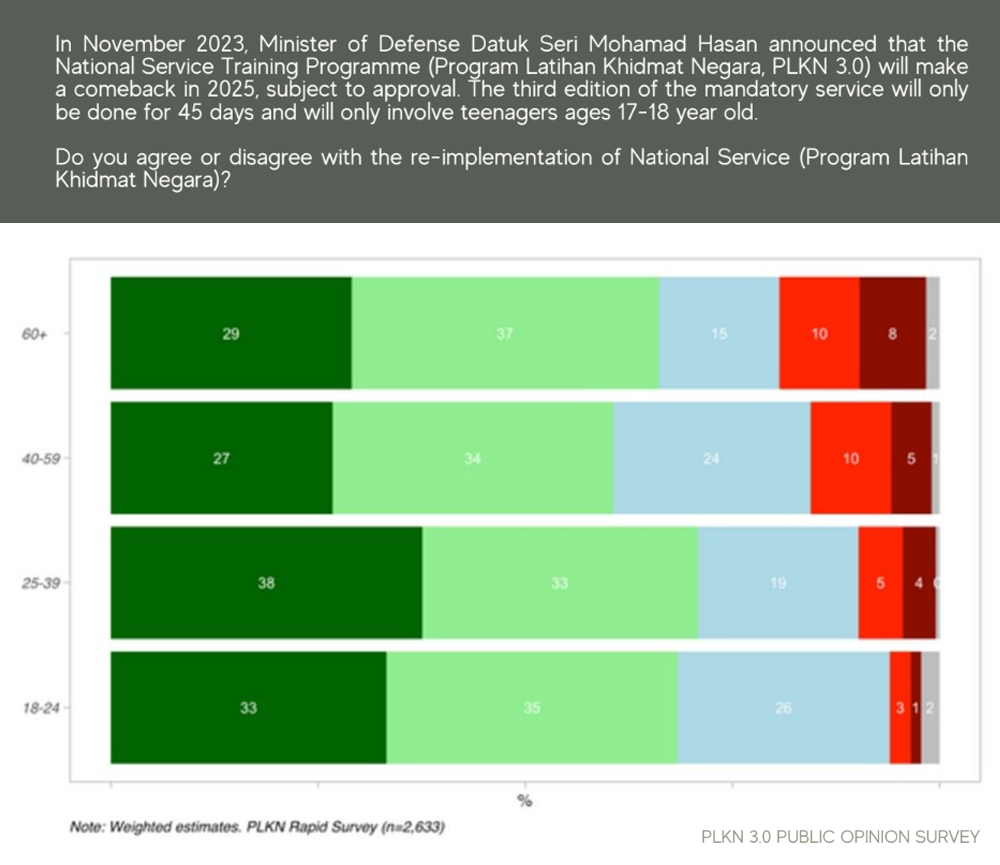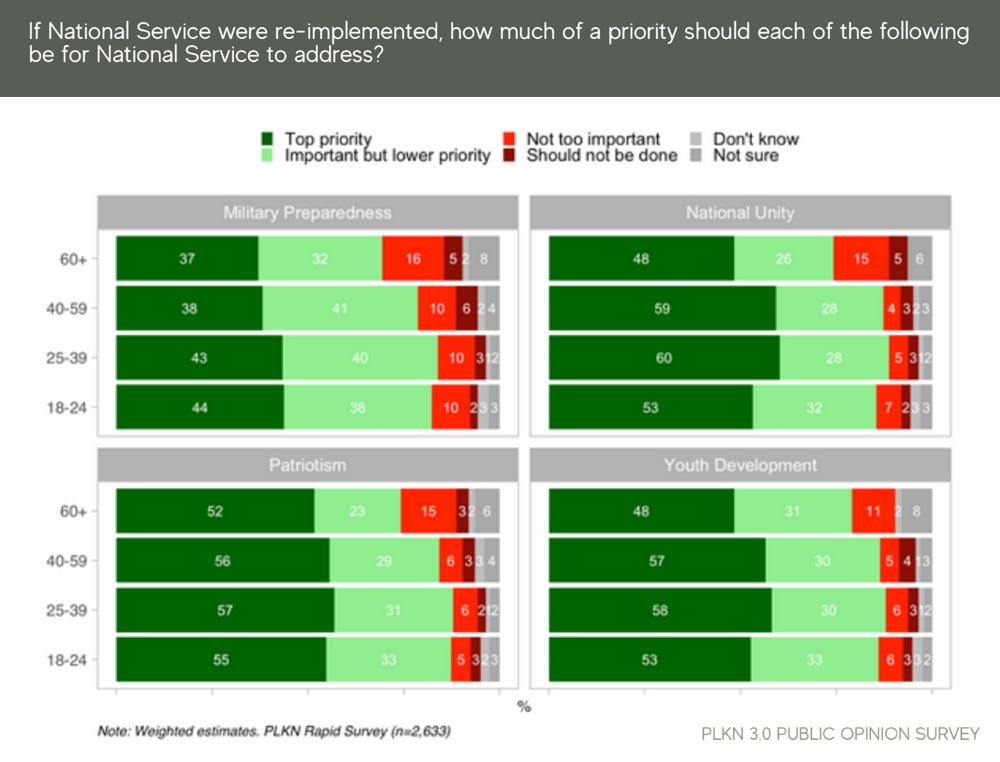A survey has found that 68 percent of Malaysians aged 18 to 24 years either strongly agree or agree with the implementation of the National Service Training Programme (PLKN) 3.0.
In the survey commissioned by the Architects of Diversity (AOD), only four percent of Gen-Z respondents disagreed with PLKN being reintroduced, while 26 percent were neutral, and two percent were undecided.
In total, only 11 percent of respondents across all age groups disagreed with the implementation of PLKN 3.0.
The survey also found in its public survey on PLKN 3.0 that millennials, the generation that experienced the first two PLKN, had the most positive opinion of the initiative.
Further, a “supermajority” of respondents agreed with the reimplementation of PLKN, said AOD executive director Jason Wee.
“The first finding we got is that two-thirds of respondents agree with the reimplementation of PLKN with only one-tenth, that is 11 percent, disagreeing.
“This means that there is a supermajority that agrees with the reimplementation of PLKN,” Wee (above) said.

The survey, which was held from Jan 24 to 30, had 2,633 respondents aged 18 and above who were selected using active the quota sampling method through Vase.ai’s online representative panel.
The demographics of the respondents were representative of the 2020 Census.
45 days of training
In October last year, the government agreed to bring back PLKN after it was stopped in 2018 by the Pakatan Harapan administration.
Now with a different training scheme, over 20,000 youths per year will undergo training at existing military camps for 45 days.
Those drafted are expected to be between the ages of 18 to 20.
Defence Minister Mohamad Hasan said the previous PLKN scheme had resulted in exorbitant funds paid by the government.
Wee said when respondents were forced to choose between four options regarding the priorities of PLKN, national unity was ranked the highest (2.83 out of 4), followed by patriotism (2.68), youth development (2.56) and military preparedness (1.94).

Despite the enthusiasm, respondents did express concerns about sexual harassment (52 percent), bullying (49 percent) and politically biased content (41 percent).
Less than a third of respondents expressed concerns about the cost of running the programme (27 percent) as well as it being a waste of time (22 percent).
AOD advocacy manager Amin Mubarak said there were several suggestions to the government to improve the programme.
Among them was the inclusion of trainers and trainees from diverse ethnic and religious backgrounds as the previous PLKN implementations skewed more towards Malays, he said.
“If we look at the 15th general election, we admit that there is a sharp shift between the races as a result of the unfavourable sentiments which came from some parties in the previous general election.
“This time, PLKN has to become a weapon to combat racial polarisation which may or may not exist.
“So PLKN is an important field for us to fight the issue of racial polarisation on and restore social cohesion in Malaysia,” he said.
Other recommendations include the need for transparency and open tender processes.
He suggested a pilot programme for PLKN 3.0 to ensure that government funds are not wasted.

Ledang MP Syed Ibrahim Syed Noh, who was also present, said the Parliamentary Special Select Committee Security Division which he is a part of had similar findings on the matter.
He added that patriotism was a focus as the youth of today are not very patriotic.
He also recommended the comparison with similar national service training done in other countries as Malaysia could learn from them despite having its own unique characteristics.
At the same time, former PLKN deputy commandant Ismail Mohd Hassan called for improvements to be made to the accommodations for trainees.
He also expressed concerns that 45 days may be insufficient for the programme as previous implementations lasted three months per cohort. - Mkini

No comments:
Post a Comment
Note: Only a member of this blog may post a comment.